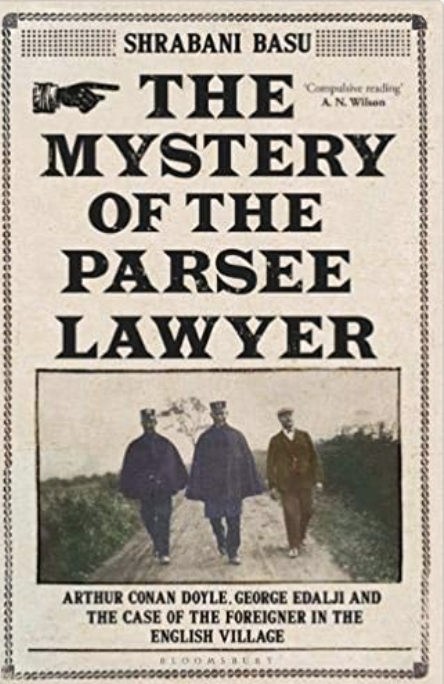
Parsee lawyer- a stranger in the English village


The village of Great Wyrley near Birmingham, someone is mutilating horses, and also sending threatening letters to the vicarage, where the vicar of Great Wyrley, a man born in Bombay of Parsi descent, Shahpur Edalj, a convert to Christianity and the first Indian to have a parish in England. A mother who was the daughter of the English vicar. The Edalji family’s presence in Staffordshire village in the 1890 provoked a vicious letter writing campaign, seemingly motivated by the beliefs and one source put it the children of mixed race marriages exemplified “the evils arising out of racial promiscuity”. Such expression of white supremacy was reflected in various forums of the day, from theatre to anthropological studies. His son George – quiet socially awkward and the only boy at school with distinctly Indian features – grows up into a successful barrister, till he is improbably linked to and then prosecuted for the above crimes in 1903, for the crime of maiming of a pony, and for not being white, in a case that left many convinced that justice hadn’t been served. When he is released early, his conviction still hangs over him. Having lost faith in the police and the legal system, George Edalji turns to the one man he believes can clear his name- the one whose novels he spent his time reading in prison, the creator of the world’s greatest detective. When he writes to Arthur Conan Doyle asking him to meet -Conan Doyle agrees. Arthur Conan Doyle stepped in outraged by the actions of a Staffordshire police “steeped in prejudice” and raised the matter at the highest levels and wrote an 18, 000 word article in the Daily Telegraph the destroyed the evidential basis for the conviction. “ Could anything be imagined meaner or more un-English that that the mistake should be admitted but reparation refused?
A century later, the horrors of injustice and international racism continue to work in tandem.
Basu connects Edalji story to more recent speeches, from Enoch Powell’s “ rivers of blood” to Theresa May’s wish for a “hostile enforcement” for immigrants.
This book highlights unexpected friendship at the early days of the twentieth century and the perils of being foreign in a country built on empire.
Shrabani Basu, an Indian journalist and historian offers the original forensic account, one that raises in broader colonial context in making a connection between racial prejudice and the functioning of the criminal justice system in England.
Britain’s failure to engage honestly with the legacy of colonialism reflects a temporal challenge how to reckon with acts of the past which, if committed today, would be international crimes but when they occurred were considered lawful?
The Mystery of the Parsee Lawyer: Arthur Conan Doyle, George Edalji and the Case of the Foreigner in the English Village by Shrabani Basu, Bloomsbury, £20, 320 pages.
